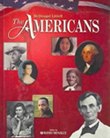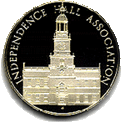- Unit 1A: The Civil War
- Unit 1B: Reconstruction
- Unit 2: Westward Expansion and Populism
- Period 2 Table of Contents
- Period 3 Table of Contents
- Period 5 Table of Contents
- Period 6 Table of Contents
Unit 1B: Reconstruction
Chapter 1
Now that the war if officailly over, what will happen to the nation as a whole? Many questions must be answered about how to reuniite the country and make the nation feel whole, maybe even more whole than before by including more people into civic society. Reconstruction will be multifaceted attempting to rebuild the physical infrastructure, politically bringing the southern states back into the Union (but with conditions), and socially integrate former slaves and black Americans into society while bringing white southerners back into the fold. But once enthusiasm in the north for Reconstruction ends, will will emerge in the south will ultimately be worse than slavery. The events that take place here will impact the development of the United States for generations, even through today. Will they get it right? Will we ever?
In this part of the unit we will focus on the consequences of the Civil War and on the political, social, and economic ramifications.
Vocabulary
Slideshows
The slideshows are best if viewed full screen.
Reconstruction and Its End
Use this presentation with Reconstruction and Its End
Online Textbook Resources
 |
"The Americans" TextbookThe links below will provide you with additional information from this unit.
|
|
USHistory.org Free Online TextbookEach link is to the beginning of a chapter. There are several sections within each chapter; I would like to link to each section, however it becomes too cumbersome for the webpage. Instead, click "Next" on each page to get to the next section of the online textbook. |
 |
|
 |
Digital History Free Online TextbookEach link is to a topic in this unit. Within each link there are MANY sections as well as many resources and activities you can investigate to further enrich and deepen your understanding. |
|
Podcasts
Podcasts can be an engaging form of information that can supplement what you learn in class. I will include episodes to podcasts I have heard and enjoyed that I believe you could benefit from or that you will find interesting related to each topic.
My favorite US History/History Podcasts include:
History This Week |
American History Tellers |
Videos!
Khan Academy - Reconstruction
If you are not familiar with Khan Academy, you should be! It is a GREAT resource for ALL subjects. They have videos and activities to supplement what your teacher is doing in class. Below is a playlist of the videos from Khan Academy regarding Reconstruction. It is a good resource to get some more information or to help you study what we covered in class.
Hip Hughes - The Emancipation Proclamation
Ok, let me start by saying, I love this guy! I wish I could do the green screen stuff like him (and had the time to do it!) His style keeps you listening and watching. Here he debunks the myth of the Emancipation Proclamation - Abraham Lincoln frees the slaves with the Emancipation Proclamation.
America: The Story of Us - The Civil War
From the History Channel video, this segment documents the Civil War in the context of part of the American Identity. It demonstrates new technologies of war and their catastrophic effects. It will also chronicle some of the important events, such as Lincoln's "Gettysburg Address" and Sherman's March. Use the Video Guide as you watch to get the main points of each segment. Complete each topic as well as the crossword puzzle on the second page.
The Presidents: Andrew Johnson
Watch the video and answer these multiple choice questions. The Presidents - Andrew Johnson
The Presidents: Ulysses S. Grant
Watch the video and answer these multiple choice questions. Video Guide: The Presidents - Grant
Crash Course American History #19: Battles of the Civil War
Warning: Not much content here, pretty much just a list of some of the battles of the Civil War.
Crash Course American History #20: The Civil War, part 1
From the Publisher
In which John Green ACTUALLY teaches about the Civil War. In part one of our two part look at the US Civil War, John looks into the causes of the war, and the motivations of the individuals who went to war. The overarching causes and the individual motivations were not always the same, you see. John also looks into why the North won, and whether that outcome was inevitable. The North's industrial and population advantages are examined, as are the problems of the Confederacy, including its need to build a nation at the same time it was fighting a war. As usual, John doesn't get much into the actual battle by battle breakdown. He does talk a little about the overarching strategy that won the war, and Grant's plan to just overwhelm the South with numbers. Grant took a lot of losses in the latter days of the war, but in the end, it did lead to the surrender of the South.
Crash Course American History #21: The Civil War, part 2
From the Publisher
In which John Green teaches you how the Civil War played a large part in making the United States the country that it is today. He covers some of the key ways in which Abraham Lincoln influenced the outcome of the war, and how the lack of foreign intervention also helped the Union win the war. John also covers the technology that made the Civil War different than previous wars. New weapons helped to influence the outcomes of battles, but photography influenced how the public at large perceived the war. In addition, John gets into the long term effects of the war, including the federalization and unification of the United States. All this plus homesteading, land grant universities, railroads, federal currency, and taxes.
Check out the US National Archives Flickr. They have an awesome collection of Matthew Brady Civil War photography here.
Links
- The Civil War Trust
A fantastic website dedicated to the Civil War and the preservation of Civil War battlefields, parks, and monuments. It includes a wealth of information about individual battles and the people involved. Interactive maps are an amazing component of this site, but it also includes diagrams, videos, and historic maps.
From the website:
The Civil War Trust is America's largest non-profit organization (501-C3) devoted to the preservation of our nation's endangered Civil War battlefields. The Trust also promotes educational programs and heritage tourism initiatives to inform the public of the war's history and the fundamental conflicts that sparked it.